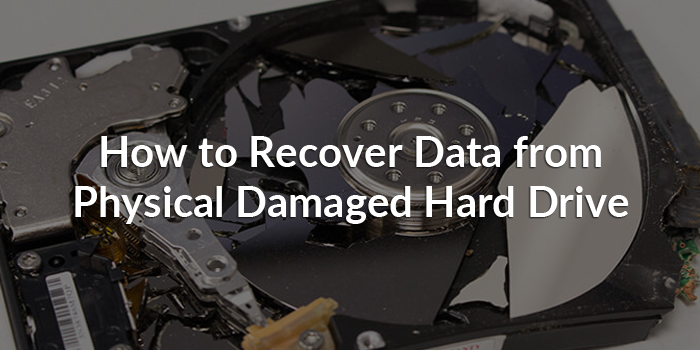

This includes leaving it outside in the sun, using a hairdryer, or putting it in an airing cupboard. This might sound counterintuitive, but don’t try and dry a water damaged hard disk drive. Time is on your side – remove it from the water as soon as possible. This probably won’t cause much of a problem, but if an HDD is submerged for an extended period of time, it becomes increasingly difficult to recover data. So even if the drive is only sipped into water for a split second, some water will be let in.


This is a complicated process that can involve advanced electronic soldering work.Īnother common physical problem we see is water damage – it goes without saying that water and electronics don’t mix! In order to equalise pressure inside the HDD, they have a breathing hole. Lost data can usually be recovered immediately regardless of whether the hard drive has crashed, been damaged or experienced a natural disaster. Hard drive data recovery from a drive physically damaged by a power surge can be incredibly difficult and time-consuming, as because it can render the PCB board unusable, the chips need to be replaced to get it powered up again. Because hard drives are not able to sustain more voltage than they were made to, if there’s a power surge, there’s a good chance the internal electronics will fry. Hard disk drives are also in danger of being physically damaged as a result of power surges. This is known as a head crash and is probably the most common physical hard drive problem we see. The hard drive’s heads hover a hair’s width above over the platter, and if the drive is subjected to physical shock, it can damage the platter and cause data loss. In older hard drives, physical damage from the spindle was common, but is seen less now because of how far HDD technology has advanced. One of the most common causes of physical data loss is at head assembly level, which is the fastest moving and most delicate part of the hard disk drive. However, because they contain moving parts, they can be susceptible to physical damage when they’re dropped, knocked or simply when they reach the end of their lifespan. Internal Hard Drives (SATA, SAS, IDE/ATA.) External. I guess I'm gonna mark this as Solved, then.Generally speaking, hard drives are pretty resistant when handled and stored correctly. We recover data from hard drives in all types of data loss situations including: Any type of Hard Drive. The last thing I'd want to do is mess up the drive even more and irrevocably lose all possibility of recovering the data, so I guess the only thing I can do here is to take it to a professional, see what they charge and decide whether I really want that data badly enough to justify the cost. Here are my specs, if it helps: Win 7 Ultimate 64bit SP1 AMD FX-6300 NVIDIA GeForce GTX 750 8 GB RAMĮDIT: Thank you all for your help.

Is there any hope of recovering the data? I've read that the data should still be there unless someone runs over the drive with a magnet or smashes it, but how do I access it if I can't boot the drive up? Is there any way to make it work? Do I have any hope of doing it on my own, or do I have to take it to a repair shop? I have an external SATA-to-USB adapter, so I tried to connect it as an external disk - it won't even spin up. One day, the drive just shit the bed and stopped working out of the blue - not even the BIOS would recognize it.
#Physically damaged hard drive data recovery full
I have an old Western Digital 500GB HDD (WD5001AALS) chock full of stuff I'd very much like to keep.


 0 kommentar(er)
0 kommentar(er)
